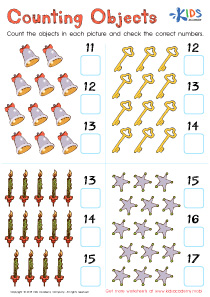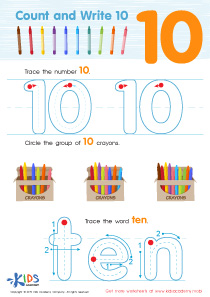Counting practice Normal Numbers up to 100 Worksheets for Ages 4-7
3 filtered results
-
From - To
Enhance your child's numerical skills with our engaging "Counting Practice Normal Numbers up to 100 Worksheets" designed for ages 4-7. These printable activities effectively develop counting proficiency, number recognition, and sequence understanding. Each worksheet offers fun, colorful exercises that motivate young learners. Tailored for early grade students, these resources ensure enjoyable and educational practice, promoting confidence and foundational math skills. Perfect for both home and classroom use, our counting worksheets support a smooth transition from preschool to elementary math readiness. Start today and watch your child excel in counting up to 100!
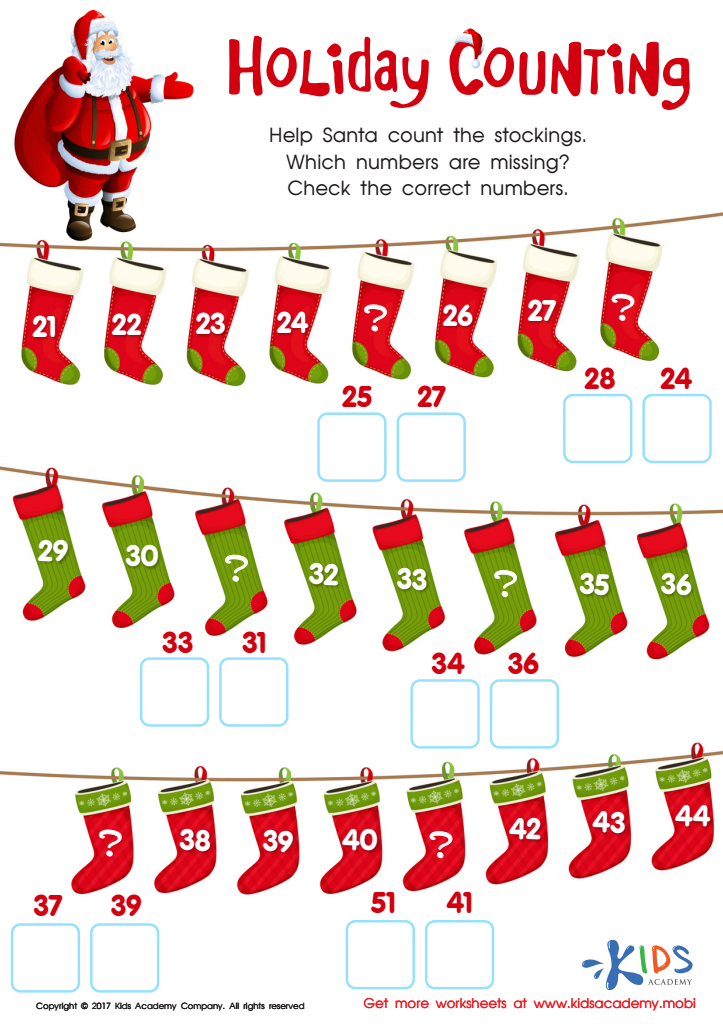

Holiday Counting Worksheet
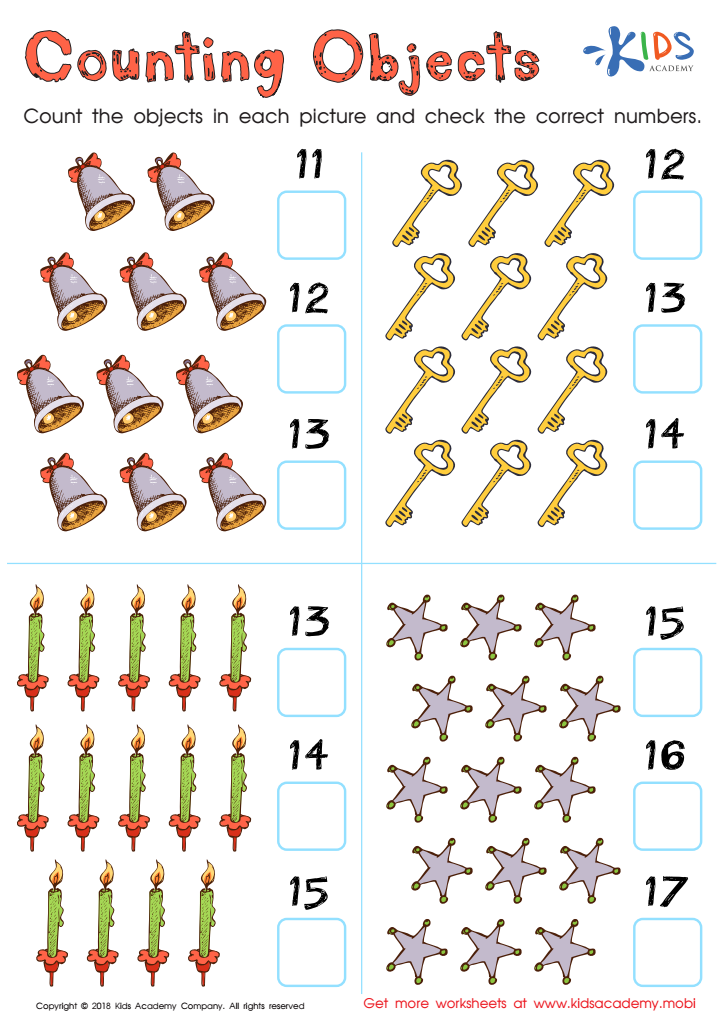

Counting Numbers Worksheet For Kindergarten
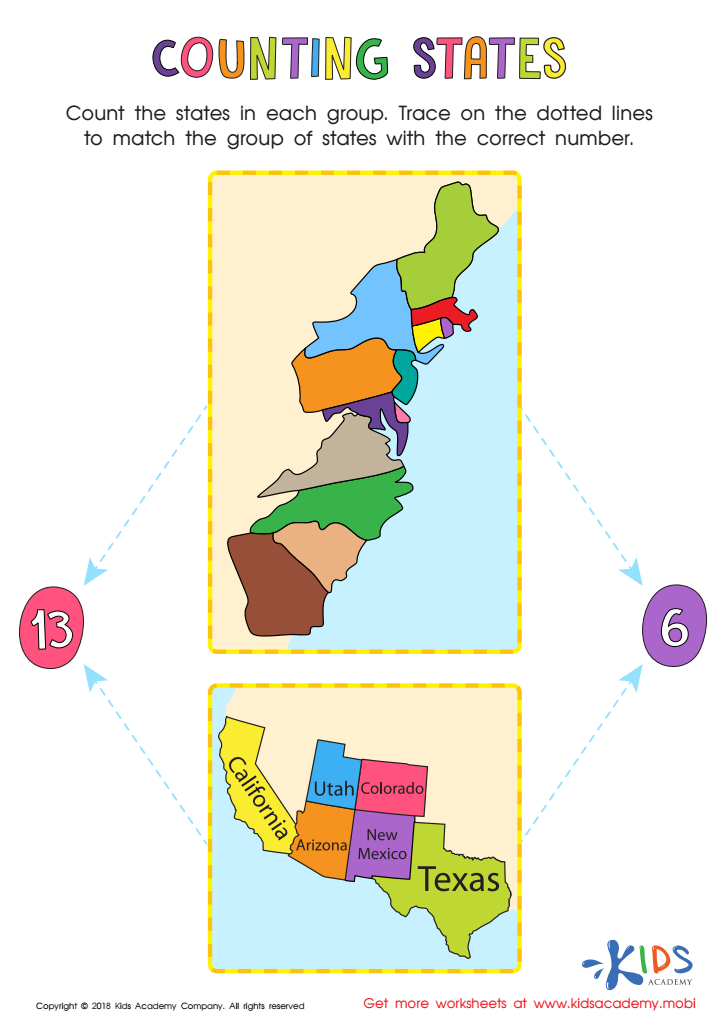

Counting States Worksheet
Engaging children ages 4-7 in counting practice with normal numbers up to 100 is crucial for several key developmental reasons. At this stage, children's cognitive and motor skills are rapidly developing. By counting, they enhance their number sense, which is foundational for future math learning, including addition, subtraction, and basic problem-solving. This early number familiarity fosters confidence and competence in mathematical contexts, setting a positive tone for future learning.
Counting up to 100 also aids in understanding numerical order and patterns, which are vital for higher-level math skills. Recognizing that numbers follow a predictable sequence helps children grasp more abstract concepts later, such as place value and the base-10 system. These skills support logical thinking and the ability to identify relationships between numbers.
Moreover, counting incorporates other essential skills, including memory, attention to detail, and fine motor skills when written numbers are involved. It can also be a social activity, promoting communication and cooperative learning when children count together in groups or with adults.
Furthermore, incorporating counting with everyday activities, like counting toys or steps, makes learning interactive and engaging. This aids in retaining their interest and curiosity, ensuring that the concepts are not just learned but enjoyed, laying a strong foundation for lifelong numeracy.
 Assign to My Students
Assign to My Students










